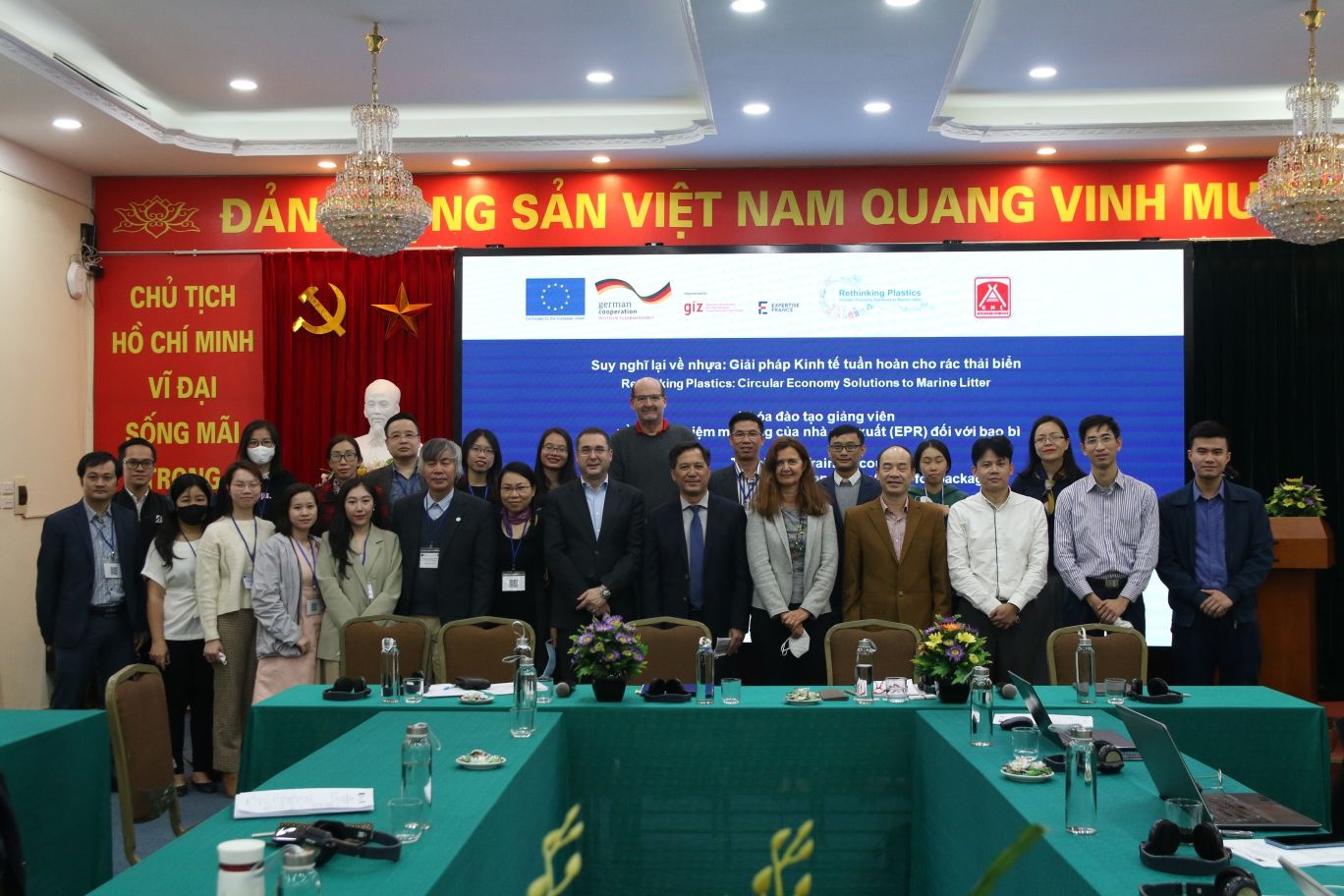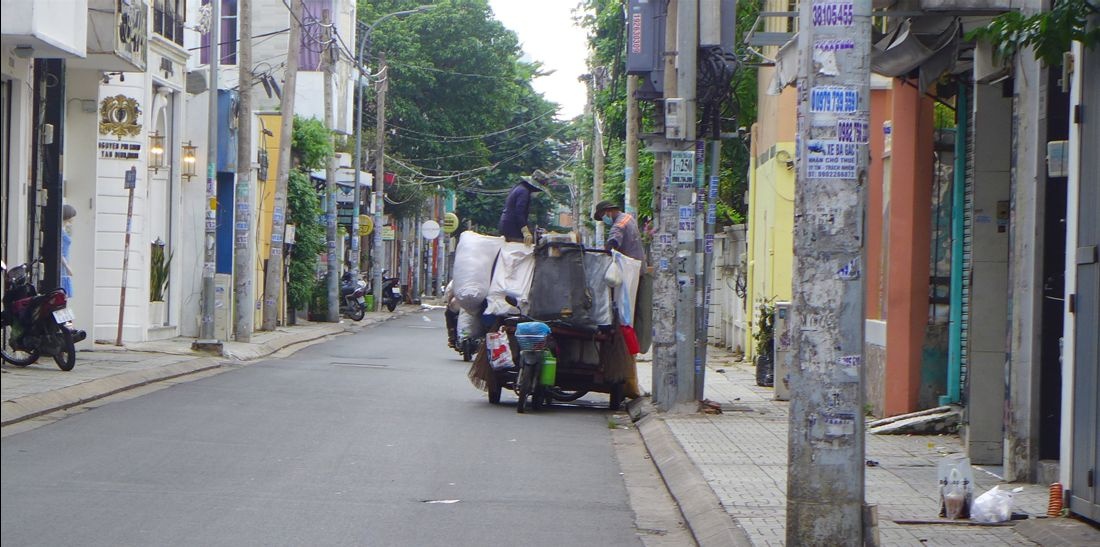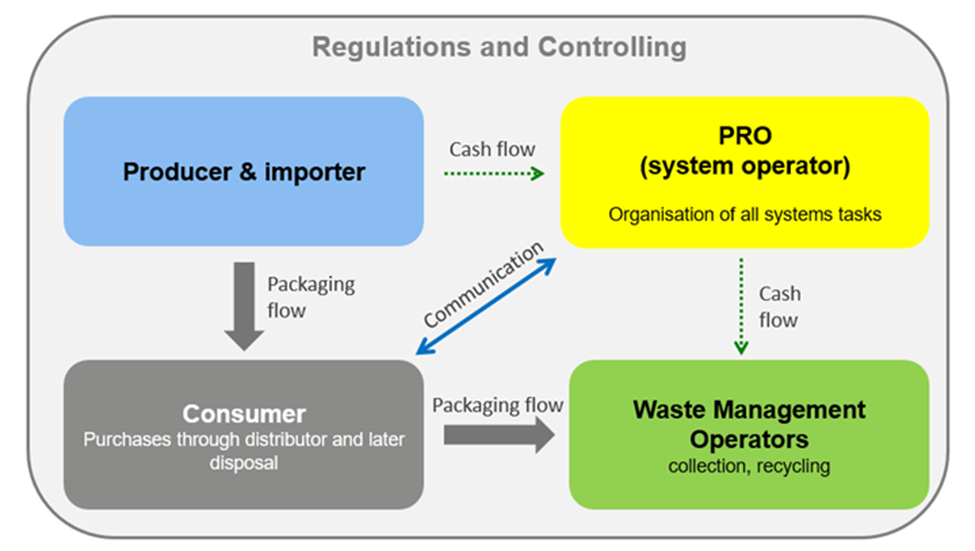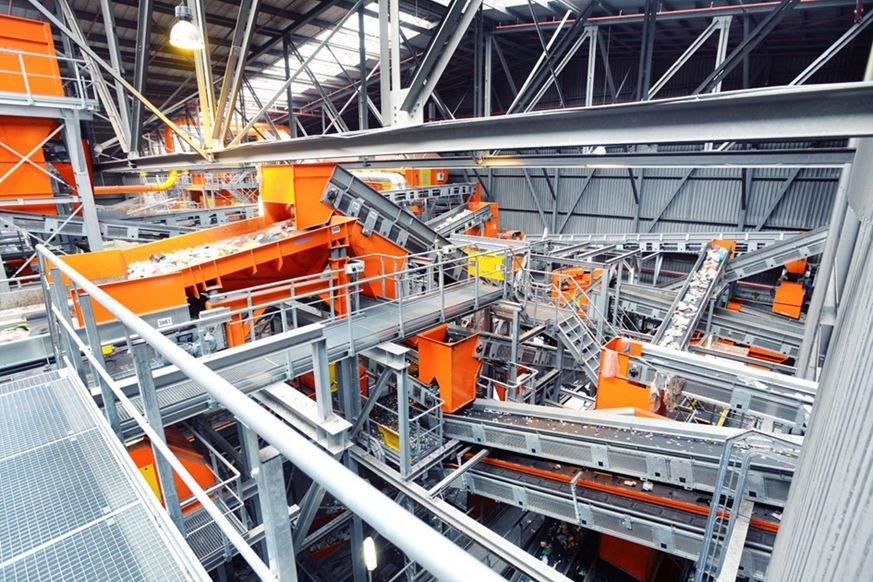Conference seeks to amplify EPR application in Vietnam
During the two training days, representatives of international organisations, the Ministry of Natural Resources and Environment (MoNRE), and domestic and foreign experts shared insights and approaches about the transition from a linear to a circular economy, of which one crucial part is the application of EPR, a circular economy approach to hold producers accountable for the plastic waste they create when producing goods.
The course had been launched within the framework of the project ‘Rethinking Plastics – Circular Economy Solutions to Marine Litter’, which supports the transition towards a circular economy for plastics and sustainable plastic consumption and production in East and Southeast Asia to contribute to a significant reduction of marine litter. The Rethinking Plastics project is funded by the European Union and the German Federal Ministry for Economic Cooperation and Development and implemented by the Deutsche Gesellschaft für Internationale Zusammenarbeit (GIZ) and Expertise France.
"The idea of the interactive Training of Trainers course was to equip Vietnamese experts and the AMC with inclusive knowledge on EPR. This will help them to conduct better training courses on the topic in the future, as more expertise is needed,” explained Fanny Quertamp, senior advisor for Vietnam at Expertise France. “The content of the training is closely linked to the current development of an EPR decree in Vietnam and is based on the Vietnamese version of the EPR Toolbox developed by the PREVENT Waste Alliance.”
The course took up topics such as the contribution of EPR to achieve a circular economy model in Vietnam and discussed, for example, what concepts for EPR currently exist, how they are implemented in Europe, and how EPR can be structured and financed.
 |
| The conference was organised as a hybrid event, with participants joining in-person and online |
Speakers such as Christophe Pautrat, head of Software Business at German waste and environmental service provider Landbell Group; Elena Rabbow, key expert of the Rethinking Plastics’ project team; and Sebastian Frisch, managing director for International Business Development at Blackforest Solutions shared their insights with the participants.
After a general introduction of the training course and all participants, the training was split into three major modules that dealt with general aspects of EPR, the participation of the informal sector in packaging waste collection and segregation, and recycling.
 |
| In Vietnam, large parts of the waste collection and segregation are carried out by informal workers |
During the first two modules, participants learned about how to define roles and responsibilities in packaging value chains and the potential tasks of producer responsibility organisations (PRO). Examples from Germany, France, and Portugal showed how PROs can collaborate with producers, registries, municipalities, and waste collectors and processors, as well as how fees and financing structures are set up.
 |
| Relationship of producers, PROs, consumers, and waste management operators within a circular EPR model |
Though presenting working examples from Europe, Pautrat clarified that “the implementation model [of EPR] has to be tailored towards the reality of each country.”
The third module on recycling presented an overview of treatment technologies for plastic packaging waste as well as best practices from Europe and how these can be transferred to Southeast Asia, along with remarks on the recyclability of materials and goods.
The AMC has been collaborating with domestic and international partners, including Expertise France, to develop training programmes and conduct research related to plastic waste and circular economy in the relationship with urbanisation.
 |
| To present a long-term vision, speakers also presented modern sorting plants for lightweight packaging like the one in Rotterdam |
“As a unique unit of the Ministry of Construction, we understand the importance of performing training and improving capacities in urban development management across the country. We support and accompany localities to develop strategies for sustainable urban development, so that waste management tools, for example, can be integrated into urban planning and management plans,” said Tran Huu Ha, director of the AMC.
“The training course on EPR will be the beginning of long-term cooperation to disseminate the EPR toolkit to all stakeholders in urban development, not only businesses but also planners, policymakers, civil society and professional organisations, and others. Action to reduce plastic waste needs the companionship and determination of all parties,” Ha added.
Meanwhile, Expertise France has been supporting the Department of Legal Affairs of the MoNRE via several activities on managing plastic waste and contributing to the elaboration of the legal framework on EPR for packaging.
“The Rethinking Plastic project has accompanied the MoNRE from the very beginning of EPR policy formulation, such as by providing data, theory, and international experience for its implementation in Vietnam, so that we can utilise this practical basis in the Law on Environmental Protection,” said Nguyen Thi from the MoNRE’s Department of Legal Affairs.
“Although EPR is not a new policy, it is the first time that it has been applied fully to ensure the circular usage of resources to implementing a circular economy in Vietnam, as well as reducing plastic waste in Vietnam. This is the first training session on EPR that the MoNRE will continue to deploy in future sessions so that all stakeholders can understand and apply EPR effectively,” said Nguyen Thi.
What the stars mean:
★ Poor ★ ★ Promising ★★★ Good ★★★★ Very good ★★★★★ Exceptional
 Tag:
Tag:
Related Contents
Latest News
More News
- Vietnam’s pivotal year for advancing sustainability (February 19, 2026 | 08:44)
- Strengthening the core role of industry and trade (February 19, 2026 | 08:35)
- Future orientations for healthcare improvements (February 19, 2026 | 08:29)
- A cultural development pillar for the new period (February 19, 2026 | 08:22)
- Infrastructure orientations suitable for a new chapter (February 19, 2026 | 08:15)
- Innovation breakthroughs that can elevate the nation (February 19, 2026 | 08:08)
- AI leading to shift in banking roles (February 18, 2026 | 19:54)
- IFC to grant $150 million loan package for VPBank (February 13, 2026 | 09:00)
- SABECO celebrates diverse Tet Traditions (February 11, 2026 | 08:00)
- Canada backs Vietnam’s green transition with AGILE project (February 09, 2026 | 17:41)

























 Mobile Version
Mobile Version